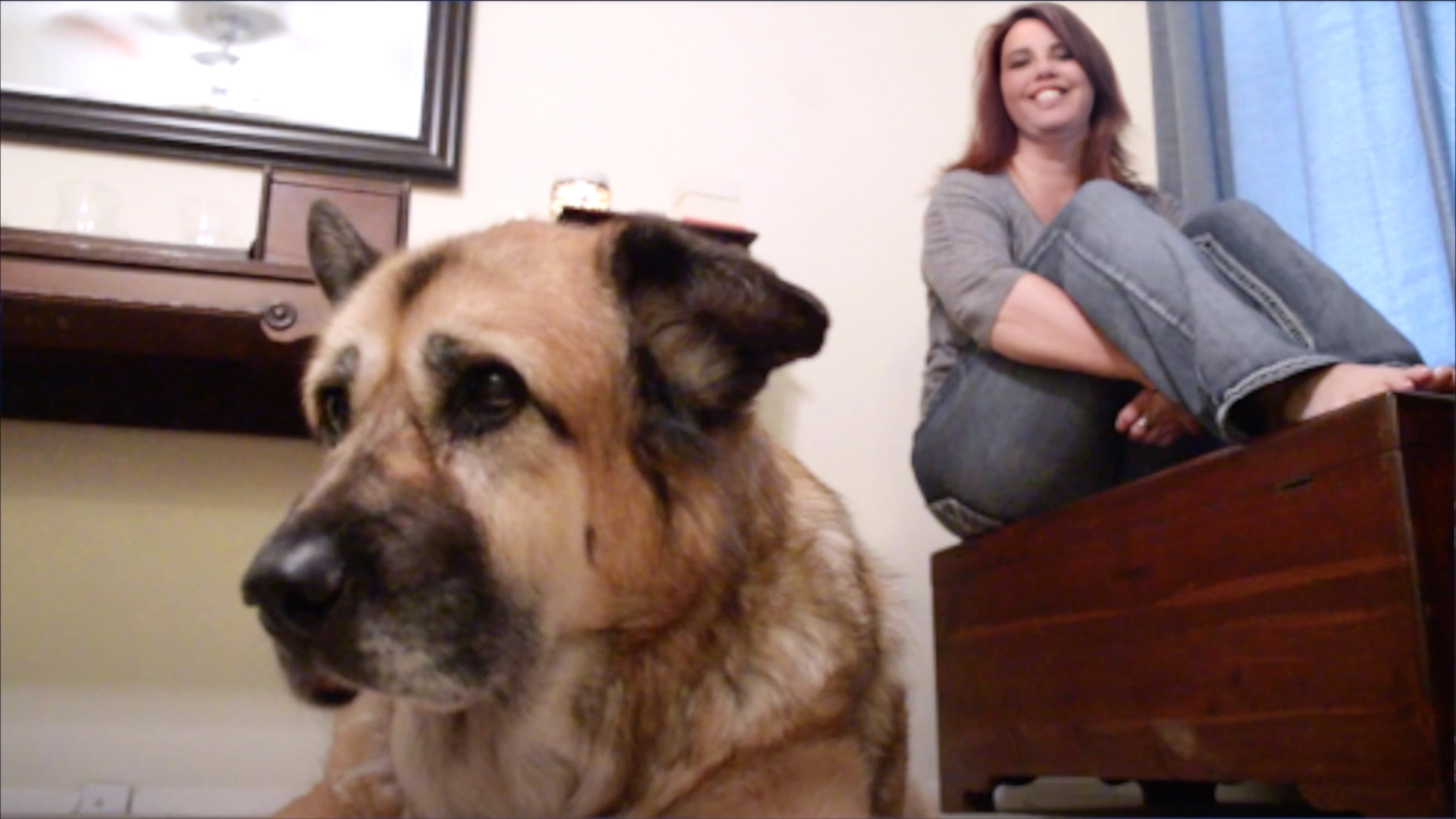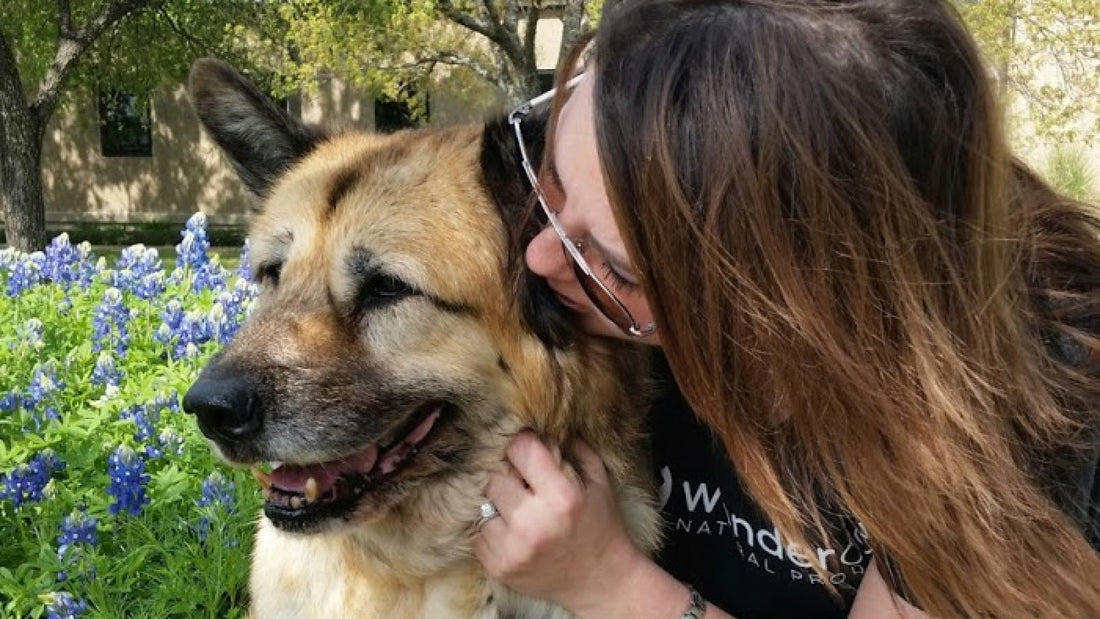A dog’s legacy has the power to change the course of millions of lives. And that’s just what Luna’s legacy has done for the pets and families that Wondercide has empowered to stay protected from bugs. Luna’s story reminds us that we can be unknowingly putting our loved ones at risk and encourages us to be vigilant about what our pets and family are exposed to.
Luna was an Akita-Husky mix. She had a great sense of adventure and would happily greet a visitor at the door. Most importantly, she was a friend and protector to those who loved her. And like any other dog, Luna was prone to nature’s peskiest patrons: fleas and ticks. Her owner, Stephanie Boone, did what any loving dog mom would have done and used protection against those unwanted insects.

Then Luna fell ill and the vet suspected that it could be due to the commonly recommended pest control products that was being used on Luna and in the home and yard. Stephanie was horrified that what she was putting on and around Luna might have caused her harm.
Stephanie was overwhelmed with guilt and grief over what was happening to her sweet dog. Luna was suffering from seizures, liver and kidney failure, and chronic skin issues. But Stephanie was more determined than ever to make things right. She dedicated all of her time and energy to nursing Luna back to good health.
Stephanie poured herself into scientific research and ingredient exploration. She became an expert in insect repellents and formulations that are safe when used as directed. Stephanie innovated a plant-powered solution and through rigorous lab testing, proved that it worked. In time, Luna grew stronger and overcame her illness with Stephanie’s help. She lived out the rest of her days, gaining an additional six years of life, as a happy and healthy pup.

Luna’s experience and the stories Stephanie heard from others who had gone through similar journeys ignited a fire in Stephanie that pushed her into her life’s purpose of helping pet parents truly protect the ones they love, even from dangers they might not be aware of. With this knowledge and experience, Stephanie started Wondercide.
With love for families everywhere, Wondercide is expanding awareness of National Animal Poison Prevention Week by sharing a list of potentially dangerous products that may be in and around the home so we can remove the risks to those we love most.
What’s poisonous for pets?
-
Chocolate: Unfortunately, this sweet treat should be saved for a special human someone and not for a furry friend. Chocolate contains theobromine which induces vomiting, and depending on the quantity ingested, could result in fatal side effects.
-
Bleach/Ammonia: These items are never meant to be ingested by humans or animals. All cleaning products are best stored out of reach by a curious pup in search of an afternoon snack.
-
Antifreeze: Antifreeze contains a toxin called ethylene glycol, which can cause fatal damage when ingested by a pet.
-
Some household plants: You might be unaware that some of the common plants in your home could be toxic to your pup. Lilies, azaleas, rhododendrons, tulips, daffodils, and philodendrons are just some of the plants that could put your pet at risk for harmful side effects. See the ASPCA’s full detailed list of toxic plants.
-
Caffeine: We all rely on that classic cup of joe in the morning to get us through the day. For our already energetic pups, caffeine can cause them to experience increased heart rate, seizures, or sometimes even death.
-
Raisins/Grapes: You wouldn’t think these innocent-looking snacks could secretly be pellets of poison. Raisins and grapes can cause kidney failure in cats and dogs. If you’re looking for a quick, safe human snack to toss them during training or just to show them some love, you can try carrots or pretzels.
-
Macadamia nuts: Not all nuts are problematic for animals, but it’s a different story for macadamias, which can cause colossal damage to your pets. Side effects include tremors, vomiting, diarrhea, and potentially hypothermia.
-
Ibuprofen (and other human medications): While medications such as ibuprofen and other pain relief medicines may cure our headaches, your dog may be looking at even worse issues. It’s always best to keep medication away from those who were not instructed by a doctor or vet to use them. In this case, it’s especially important due to the poisonous effects these drugs have on pets.
-
Avocados: You may be ready to guac and roll all night, but not your pup. Avocados contain a toxin called persin, which is known to induce vomiting and diarrhea in animals.
-
Alcohol: Our pets are our lightweight friends we should never go drinking with. Alcohol poisoning is a very real concern for animals. It takes a much smaller dose to knock out a furry friend than it does a human.
-
Onions and garlic: Beyond Vampires, garlic keeps away a cuter creature. Onions and garlic contain a compound called N-propyl disulfide. This compound can damage a dog’s red blood cells.
- Xylitol: This sugar alcohol is found in lots of lovable human foods such as candy, sugar-free gum, and certain types of peanut butter. Sadly, xylitol can lead dogs to lower blood sugar and even cause seizures or liver failure.
When in doubt, make the call.
Of course, accidents happen. Animals are unfortunately unaware of the foods or substances that may cause them harm. When a pet smells something interesting, they’re going to take a bite. If a pet has gotten into one of these poisonous items, there are a few things people can do. First, always consult your veterinarian.
When in doubt, people can call the ASPCA Animal Poison Control Center Phone Number: (888) 426-4435 or use the Pet Poison Helpline at (855) 764-7661.
Poison goes by many names, some of which may seem like a delicious, innocent snack to a human. It’s important to be aware and alert of all of the potentially toxic items we have in the home to protect our beloved pets. Join Wondercide in acknowledging National Animal Poison Prevention Week from March 17-23. Show your furry friend that you have their back and are helping them stick around for many more years of four-legged fun.




